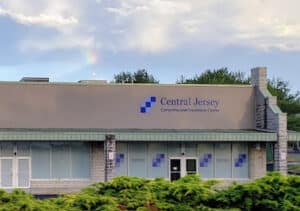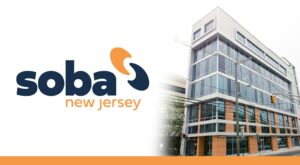Connecticut Drug Rehabs

Newport Academy – Teen Rehab Center
Bethlehem , CT

Newport Academy – Teen Treatment Center
Fairfield , CT



Clearbrook Treatment Centers
Baldwinville , MA

Recovery Centers of America at Westminster
Westminster , MA

Central Jersey Comprehensive Treatment Center
Cliffwood , NJ

Recovery Centers of America at Raritan Bay
South Amboy , NJ
Connecticut Addiction Treatment
Opioids, like Vicodin, oxycodone and heroin, are the most abused substances in Connecticut. Research shows that most people get these drugs from family and friends, rather than try to get and pay for an expensive prescription.
Rising costs of prescription drugs have driven some people to turn to heroin as a cheaper alternative, resulting in more addictions and potential overdoses.
Connecticut has seen a spike in accidental deaths involving drugs, alcohol and opioids in recent years. In 2012 there were 355 accidental overdose deaths. In 2014, that number increased to 558. Because of this, Connecticut has adopted a multifaceted approach to help people struggling with addiction. Legislators believe that treating substance addiction as a public health and safety issue, rather than just a crime issue, is the key to saving lives.
While addiction rates increase, many Connecticut residents are getting help. People who have sought treatment for their drug and alcohol addictions have successfully turned their lives around.
Connecticut Laws Of Drug Abuse
Approximately 14,000 individuals in Connecticut are arrested for a drug offense every year. Connecticut’s judicial system takes two primary factors into consideration when sentencing someone for drug possession: the type of drug and previous crimes committed. A judge assesses whether the drug is a controlled or illicit substance, as well as if the crime was a first or repeated offense.

Break free from addiction.
You have options. Talk about them with a treatment provider today.
Marijuana Possession Laws In Connecticut
Although medical marijuana was legalized in Connecticut in 2012, possession of marijuana for recreational use is still illegal. Penalties are categorized by possession amount and number of previous offenses.
| Number of Offenses | Amount of Marijuana Possessed | Penalty | Sentencing |
|---|---|---|---|
| First offense | Less than ½ oz. | Civil penalty | No imprisonment; fine up to $150 |
| Subsequent offense | Less than ½ oz. | Civil penalty | No imprisonment; fine up to $500 |
| First offense | ½ oz. — less than 4 oz. | Misdemeanor | Imprisonment up to 1 year; fine up to $1,000 |
| Subsequent offense | ½ oz. — less than 4 oz. | Felony | Imprisonment up to 5 years; fine up to $3,000 |
| First offense | 4 oz. or more | Felony | Imprisonment up to 5 years; fine up to $2,000 |
| Subsequent offense | 4 oz. or more | Felony | Imprisonment up to 10 years; fine up to $5,000 |
After the third offense for possessing less than one-half ounce, violators lose their license for 60 days and must attend drug education at their own expense. If a person is found with more than one-half ounce near a school or daycare center, they could face an additional two years of prison added to their original sentence.
Narcotic Possession Laws In Connecticut
To combat fast-rising abuse rates, Connecticut’s narcotic possession penalties have become tough and unforgiving—no matter how much you’re caught with.
| Type of Offense | Maximum Penalty and Sentencing |
|---|---|
| First offense | Imprisonment up to 7 years; fine up to $50,000 |
| Second offense | Imprisonment up to 15 years; fine up to $100,000 |
| Third offense | Imprisonment up to 25 years; fine up to $250,000 |
Harm Reduction Laws In Connecticut
Addiction is a progressive disease that can be treated. Connecticut has implemented a number of harm reduction laws that promote safety, education and protection for its residents.
Harm reduction laws encourage safe practices that promote public safety. Although drug abuse can’t be 100 percent prevented, harm reduction laws can help people avoid infection or injury should they choose to use drugs.
Connecticut provides its residents with several resources throughout the state, including methadone treatment centers, clean syringe access centers, counseling services and HIV testing.
Connecticut’s 911 Good Samaritan Law
Fatal overdoses are now the leading cause of accidental death in the United States. Many overdoses can be prevented by calling for help, but some people hesitate to call 911 for fear of being arrested for their own drug use.
Connecticut has a Good Samaritan law that protects people from being charged or arrested for drug abuse or possession if they call 911 for an overdose. The law applies to someone’s own overdose as well as another person’s.
Public Act 16-43
Public Act 16-43 was signed into legislation in 2016. This law expands on Connecticut’s efforts to address the rising rates of opioid abuse.
The law addresses several areas, including:
- Limiting the duration and amount of opioids prescribed to no more than seven days, unless certain medical conditions apply.
- Changes required to the state’s current prescription monitoring program to help monitor drug abuse trends and prevent substance addiction from developing.
- Requiring emergency medical services to provide naloxone administration training to all EMTs to help save as many people as possible from an overdose.

Break free from addiction.
You have options. Talk about them with a treatment provider today.
Addiction Services In Connecticut
Connecticut’s Department of Mental Health and Addiction Services provides treatment resources for people suffering from substance abuse disorders. Services vary by region, but can include long-term rehabilitation, intensive and intermediate residential services, outpatient care and aftercare services like sobriety counseling. The department’s goal is to prevent and reduce substance abuse and addiction, while taking a recovery-driven approach for people suffering from an addiction disorder.
Involuntary Commitment For Substance Abuse In Connecticut
A loved one of someone with a substance abuse disorder may petition Connecticut’s Probate Court to require them to go to rehab.
The court listens to the evidence about the person’s condition, as well as testimonies from the person suffering, the concerned loved ones and a physician. If the judge decides the person should be required to get treatment, the person must reside in an inpatient treatment center between 30 to 180 days, or until they no longer need treatment.
Paying for rehab is a top concern of people required to get treatment. There are many options available to help you get the treatment you deserve. Many private health plans cover at least a portion of care, and some cover it entirely. To learn if your benefits cover inpatient rehab, contact your health plan provider.
Connecticut Drug Courts
A drug court is a specialized court responsible for dealing specifically with drug-related offenses. Non-violent offenders with a drug addiction are sometimes sent to a drug court instead of the traditional judge system. Eligibility varies according to each state’s guidelines.
Drug courts have the unique approach of addressing the person’s addiction as a root cause of a crime. Participants in drug courts receive addiction treatment, counseling and any other services they need in order to return as a healthy and productive member of society. Research has shown that people who complete drug court programs are far less likely to relapse than those who go to traditional prison or jail.
Connecticut has two operating drug courts in Danielson and New Haven that make up the state’s Drug Intervention Program. Each court handles their own pending cases separately and partner with local drug treatment service providers. The program aims to decrease criminal behavior and reduce substance abuse through inpatient and outpatient treatment, court monitoring, drug testing, therapy and any other services needed.
Connecticut Addiction Treatment
Several drug addiction and recovery centers are located in Connecticut to help you or your loved one get back on their feet. Because of the state’s high opioid and prescription drug addiction rates, many of Connecticut’s treatment programs are designed to address these needs and more.
With so many options, finding a treatment center can seem overwhelming. Many people travel to another state, or sometimes another region, in order to get the special care they need.
Sometimes, a change of scenery makes all the difference in starting the journey toward recovery.
Are you ready to break the cycle of addiction and get your life back? Contact a treatment provider today.
Published:
Author
Jeffrey Juergens

-
Jeffrey Juergens earned his Bachelor’s and Juris Doctor from the University of Florida. Jeffrey’s desire to help others led him to focus on economic and social development and policy making. After graduation, he decided to pursue his passion of writing and editing. Jeffrey’s mission is to educate and inform the public on addiction issues and help those in need of treatment find the best option for them.
- More from Jeffrey Juergens
- Alabama
- Alaska
- Arizona
- Arkansas
- California
- Colorado
- Connecticut
- Delaware
- Florida
- Georgia
- Hawaii
- Idaho
- Illinois
- Indiana
- Iowa
- Kansas
- Kentucky
- Louisiana
- Maine
- Maryland
- Massachusetts
- Michigan
- Minnesota
- Mississippi
- Missouri
- Montana
- Nebraska
- Nevada
- New Hampshire
- New Jersey
- New Mexico
- New York
- North Carolina
- North Dakota
- Ohio
- Oklahoma
- Oregon
- Pennsylvania
- Rhode Island
- South Carolina
- South Dakota
- Tennessee
- Texas
- Utah
- Vermont
- Virginia
- Washington
- West Virginia
- Wisconsin
- Wyoming
- Guam
- Puerto Rico
- US Pacific Islands
- US Virgin Islands
- Washington D.C.
- American Samoa
Sources
Cities in Connecticut
Feature your center
Ready to connect with treatment seekers across the country? Enter your information to learn about our advertising options and get in contact with our development team.



